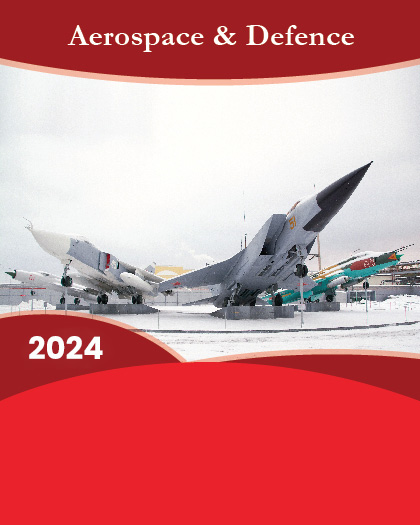
Global Electro Optics Market is valued approximately USD 12.6 billion in 2023 and is anticipated to grow with a healthy growth rate of more than 5.50% over the forecast period 2024-2032. Electro-optics is a field of physics and engineering that examines the interaction between light and electric fields. It involves studying, designing, and applying devices and systems that manipulate light using electrical methods. This field plays a vital role in various industries, including telecommunications, defense, medicine, and consumer electronics. Electro-optic devices rely on materials with unique properties that allow their optical characteristics to change when an electric field is applied. Across the globe, with the increasing demand for high-speed data transmission and processing, photonics was becoming increasingly important in data center architectures. Optical interconnects and photonic integrated circuits (PICs) were being developed to address the limitations of traditional electronic interconnects. The integration of electro-optic systems in advanced driver assistance systems (ADAS) and autonomous vehicles is emerging trend in Global Electro Optics Market as these technologies enhance vehicle safety and performance.
Global demand for electro-optics technology is poised for substantial growth, primarily fueled by the escalating need for surveillance and security systems. This trajectory is further propelled by the inherent advantages of electro-optical systems and the uptick in worldwide military expenditure. With defense organizations and armed forces globally ramping up spending, the electro-optics market is witnessing a surge in demand. These systems find extensive application in defense, spanning from surveillance and reconnaissance to target acquisition and threat detection. The increasing emphasis placed by numerous nations on bolstering their military capabilities and transitioning to contemporary warfare solutions is driving the robust demand for electro-optical systems. Furthermore, Electro Optics Market is driven by growing demand for fiber optic communication and rise of photonics in data centers. However, high initial investment of electro optics and complex installation process stifle the market growth between 2022 and 2032.
The key regions considered for the Global Electro Optics Market study includes Asia Pacific, North America, Europe, Latin America, and Rest of the World. In 2023, North America was the largest regional market. In its long-term strategy, North America, particularly the United States, continues to play a pivotal role in the electro-optics market. Prominent organizations and governmental bodies in the region have made substantial investments to advance electro-optics technology. This concerted effort is fueling the expansion of the electro-optics industry throughout North America. Moreover, the region's growing emphasis on research and development, coupled with a robust manufacturing base, supports the production and innovation of advanced electro-optic devices. The market in Asia Pacific is expected to grow at the fastest rate over the forecast period 2024-2032.
Major market player included in this report are:
Lockheed Martin Corporation
L3Harris Technologies, Inc.
Textron Systems
Safran Group
Northrop Grumman
BAE Systems plc
Thales Group
Leonardo DRS
Safran Group
FLIR Systems Inc.
The detailed segments and sub-segment of the market are explained below:
By Application
Air Based
Land Based
Naval Based
By End User
Defense
Aerospace
Homeland Security
By Region:
North America
U.S.
Canada
Europe
UK
Germany
France
Spain
Italy
ROE
Asia Pacific
China
India
Japan
Australia
South Korea
RoAPAC
Latin America
Brazil
Mexico
Middle East & Africa
Saudi Arabia
South Africa
RoMEA
Years considered for the study are as follows:
Historical year - 2022
Base year - 2023
Forecast period - 2024 to 2032
Key Takeaways:
Market Estimates & Forecast for 10 years from 2022 to 2032.
Annualized revenues and regional level analysis for each market segment.
Detailed analysis of geographical landscape with Country level analysis of major regions.
Competitive landscape with information on major players in the market.
Analysis of key business strategies and recommendations on future market approach.
Analysis of competitive structure of the market.
Demand side and supply side analysis of the market
























